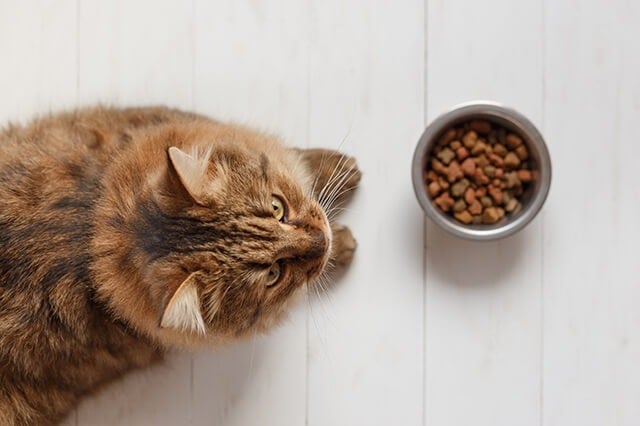
Have you noticed that your cat no longer eats at the same rate of food that she used to consume and has become more isolated and prefers to remain alone and silent? Even her favorite types of food no longer use them normally, and even the rewards that she loves.
Learn with Petaholic about the causes of loss of appetite in cats
The causes of anorexia in cats vary and include the following:
1. Repeating food for a long time:
Feeling bored and fed up with eating the same type of food for a long time may lead to loss of appetite.
2. Disease incidence:
- Some diseases such as intestinal worms and pancreatitis can cause loss of appetite.
3. Problems with teeth and gums:
Dental problems such as cavities or gingivitis can affect your cat's ability to eat.
4. Swallowing hair:
- Cat cleaning its body can lead to swallowing large amounts of hair, which affects appetite.
5. Change in eating system:
- A sudden change in the type of food or the dish it is placed in can cause reluctance to eat.
6. Psychological pressure:
Stress or the presence of another animal in the house can lead to loss of appetite.
7. Aging:
- With age, your cat's desire to eat may decrease.
8. Lack of smell:
- In some cases, there may be problems with the sense of smell that lead to loss of appetite.
9. Jealousy or rivalry:
The presence of another cat or animal in the home can affect a cat's appetite.
All dry and wet food products with Petaholic are competitively priced with Petaholic from here
What is the treatment for anorexia in cats?
Treating anorexia in cats depends on dealing with the underlying cause of this problem. First, you should visit your veterinarian to determine the exact cause and prescribe appropriate treatment. The cat's appetite can be stimulated by offering different types of delicious food. If there are dental problems, they must be treated to facilitate the eating process. Treating underlying diseases is vital to restoring your cat's overall health. In case of digestion problems, nutritional supplements or special foods can be used to deal with this problem. Appetite can also be stimulated by offering small, frequent meals. In cooperation with your veterinarian, effective steps can be taken to overcome anorexia and ensure the health and well-being of your cat.
What is the reason why cats do not want to eat?
Cats not wanting to eat may be due to several different reasons. In some cases, the cause may be related to the cat's overall health, with general illnesses and injuries being a common cause. Your cat may have dental problems, such as gingivitis or tooth decay, causing it to not want to eat.
Changes in the environment can also play a role in a cat's loss of appetite. Stress and stress due to sudden changes may lead to reduced appetite. In addition, worms and parasites can cause digestive problems and loss of appetite.
Changes in the type or brand of food may also be a reason for your cat to refuse to eat. Aging may also play a role, as a cat's needs change as he ages, and his interest in food may decrease.
Ultimately, it is advisable to visit a veterinarian to evaluate the condition and determine the exact cause of the loss of appetite, which will enable the necessary steps to be taken to improve the health and safety of the cat.
Earth Goodies Complete and Balanced Chicken Wet Food for Adult Cats, 85 grams
Shop the product here with Betaholic
How do I know if a cat is sick?
There are several signs that can be monitored to detect cat illness. Here are some common signs that your cat may be sick:
1. Changes in appetite: Loss of appetite or increase in appetite can be a sign of a health problem.
2. Vomiting and diarrhea: If your cat is vomiting frequently or has diarrhea, there may be a digestive problem.
3. Changes in /strong> Noticeable changes in daily behavior, such as lethargy or sudden aggression, could be evidence of a health problem.
4. Weight changes: Unexplained weight loss or rapid weight gain can be indicators of health problems.
5. Problems with urination or stool: Difficulty urinating or changes in stool can indicate problems with the urinary or digestive system.
6. Changes in the mouth and teeth: Bad breath or changes in the teeth can be a sign of health problems.
7. Sneezing or coughing: Continuous sneezing or coughing can indicate respiratory problems or infections.
8. Hair and skin changes: Unexplained hair loss or changes in skin condition can be indicators of skin problems or hair loss.
If you notice any of these signs, it is recommended to have your cat examined by a veterinarian to verify its health condition and diagnose the problem, if any.
Do worms cause loss of appetite in cats?
Yes, worms can cause loss of appetite in cats. The presence of worms in the digestive system can cause discomfort and irritation, leading to loss of appetite.
Book your appointment with Petaholic from here with home service with a specialized team that arrives at your doorstep for Riyadh customers.

